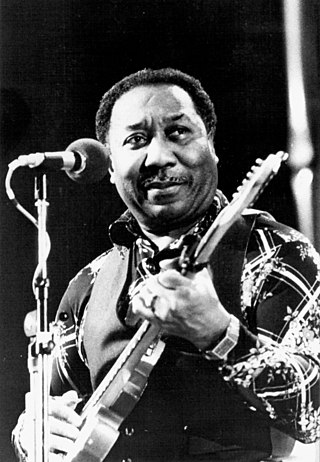
McKinley Morganfield, known professionally as Muddy Waters, was an American blues singer and musician who was an important figure in the post-World War II blues scene, and is often cited as the "father of modern Chicago blues". His style of playing has been described as "raining down Delta beatitude".

Muddy Waters (1913–1983) was an American blues artist who is considered a pioneer of the electric Chicago blues and a major influence on the development of blues and rock music. He popularized several early Delta blues songs, such as "Rollin' and Tumblin'", "Walkin' Blues", and "Baby, Please Don't Go", and recorded songs that went on to become blues standards, including "Hoochie Coochie Man", "Mannish Boy", and "Got My Mojo Working". During his recording career from 1941 to 1981, he recorded primarily for two record companies, Aristocrat/Chess and Blue Sky; they issued 62 singles and 13 studio albums.
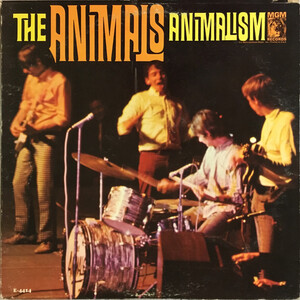
Animalism is the fifth American album by the Animals, released in November 1966. The album includes the band's usual repertoire of blues and R&B covers, while Frank Zappa contributed a song and played bass on two tracks. It was the last album recorded by the original incarnation of the Animals prior to their disbandment, after which singer Eric Burdon would assemble a mostly new lineup under the name "Eric Burdon and the Animals". This new version of the group was already touring when Animalism released.

At Newport 1960 is a live album by Muddy Waters recorded during his performance at the Newport Jazz Festival on July 3, 1960. With his longtime backup band, Muddy Waters plays a mix of his older popular tunes and some newer compositions. Chess Records released the album in the United States on November 15, 1960.
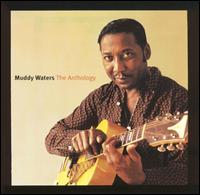
The Anthology: 1947–1972 is a double compilation album by Chicago blues singer and guitarist Muddy Waters. It contains many of his best-known songs, including his R&B single chart hits "I'm Your Hoochie Coochie Man", "Just Make Love to Me ", and "I'm Ready". Chess and MCA Records released the set on August 28, 2001.

The Biggest Thing Since Colossus is an album by American blues musician Otis Spann, released in 1969. The album is also notable for the fact that Spann's backing band on this occasion were members of Fleetwood Mac, who were touring in America at the time. Spann had been involved in the recording of the Blues Jam at Chess album, and a rapport had been struck between Spann and the British band, which led to their participation on Spann's new album.

Crawfish Fiesta is an album by Professor Longhair, released in 1980 by Alligator Records. It features Dr. John, who reprised his original role as guitarist in Longhair's band, Johnny Vidacovich on drums, Tony Dagradi and Andrew Kaslow on sax, and Longhair's long time conga player Alfred "Uganda" Roberts. The album was recorded at the Sea-Saint Studios in New Orleans and it was co-produced by Kaslow, his wife Allison and Bruce Iglauer. It won the first W.C. Handy Blues Album of the Year award in 1980.

The Best of Muddy Waters is a greatest hits album by Muddy Waters released by Chess Records in April 1958. The twelve songs were originally issued as singles between 1948 and 1954 and most appeared in Billboard magazine's top 10 Rhythm & Blues Records charts.
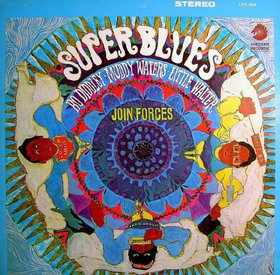
Super Blues is a 1967 studio album by a blues supergroup consisting of Bo Diddley, Muddy Waters, and Little Walter. The album was released in both mono and stereo formats by Checker Records in June 1967. A follow-up album The Super Super Blues Band was released later that year and featured Howlin' Wolf replacing Little Walter.
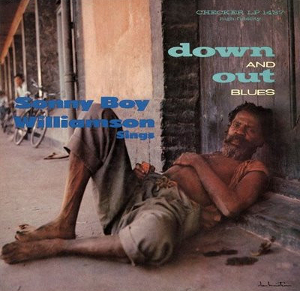
Down and Out Blues is the first LP record by American blues musician Sonny Boy Williamson. The album was released in 1959 by Checker Records.

Fathers and Sons is the seventh studio album by the American blues musician Muddy Waters, released as a double LP by Chess Records in August 1969.

Triple Play is an album by American jazz saxophonist Johnny Hodges recorded in 1967 and released on the RCA Victor label.

Muddy Waters Sings "Big Bill" is the first studio album, but second overall album by blues musician Muddy Waters, featuring songs by Big Bill Broonzy, released by the Chess label in 1960.
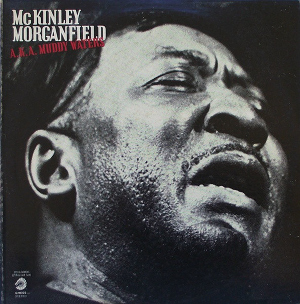
McKinley Morganfield A.K.A. Muddy Waters is a compilation album by blues musician Muddy Waters featuring tracks recorded between 1948 and 1953 released by the Chess label in 1971.
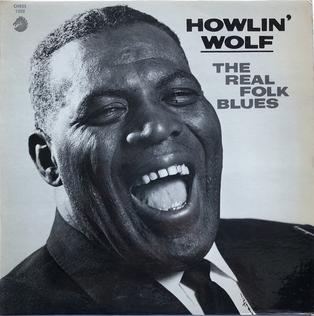
The Real Folk Blues is a compilation album by blues musician Howlin' Wolf, which was released by Chess Records in 1965. The album's songs, which were originally issued as singles, were recorded in Chicago between 1956 and 1965.
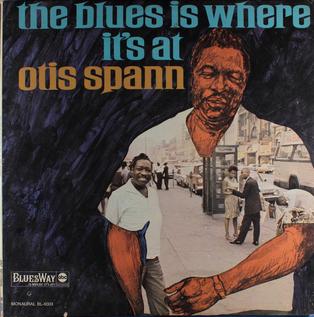
The Blues Is Where It's At is an album by blues pianist/vocalist Otis Spann recorded in 1966 and originally released by the BluesWay label.
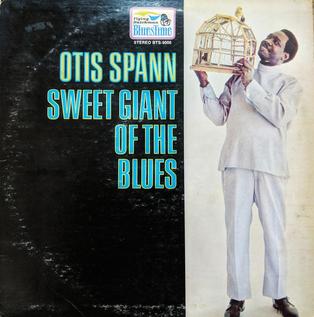
Sweet Giant of the Blues is an album by blues pianist and vocalist Otis Spann recorded in New York in 1969 and released by the BluesTime label.

Cryin' Time is an album by blues pianist and vocalist Otis Spann recorded in Chicago in 1968 and released by Vanguard Records.
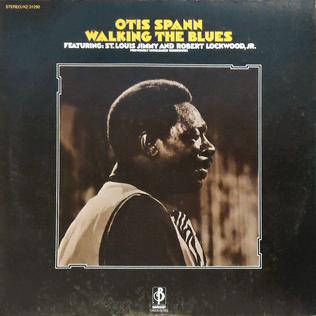
Walking the Blues is an album by blues pianist and vocalist Otis Spann recorded in New York in 1960 by Candid Records but not released until 1972 by the Barnaby label.

Chicago/The Blues/Today! is a series of three blues albums by various artists. It was recorded in late 1965 and released in 1966. It was remastered and released as a three-disc album in 1999.




















